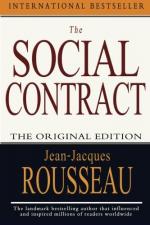
|
| Name: _________________________ | Period: ___________________ |
This quiz consists of 5 multiple choice and 5 short answer questions through Book 3, Part 4.
Multiple Choice Questions
1. According to the author, a city is a collection of which of the following?
(a) Families.
(b) Buildings.
(c) Areas.
(d) Citizens.
2. According to the author, violence is a poor means of maintaining which of the following?
(a) Revolution.
(b) Respect.
(c) Social order.
(d) A government.
3. What type of assembly deals with day-to-day matters?
(a) A religious assembly.
(b) A criminal assembly.
(c) An emergency assembly.
(d) A superior assembly.
4. In order to promote efficiency in a democracy, in which of the following must there be utter equality in rank and fortune?
(a) The citizens.
(b) The magistrates.
(c) The legislators.
(d) The officeholders.
5. According to the author, which of the following is the sign of a good government?
(a) Absolute.
(b) Hidden.
(c) Different for different countries.
(d) Never present.
Short Answer Questions
1. The author believes that Grotius formed his theories with the sole aim of flattering and ingratiating himself with whom of the following?
2. The author believes that the people who deliberate and form the general will do not always do so from a place that houses which of the following?
3. The author believes that a good government must be which of the following?
4. Which of the following does the author believes to be few in number in a well-ordered state?
5. When a state is too small, the people's spirit tends to become which of the following?
|
This section contains 238 words (approx. 1 page at 300 words per page) |

|




